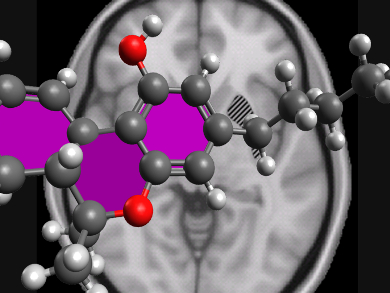Alzheimer’s disease is a severe neurodegenerative disorder. The hallmarks of this pathology are amyloid‑β plaques, namely peptides of 36 – 43 amino acids (Aβ peptides) that accumulate in the neurons, thereby inducing their death. Although this disease is progressively fatal, there are no cures for it.
Jianfeng Cai, University of South Florida, Tampa, USA, and colleagues discovered that very low doses of Δ9‑tetrahydrocannabinol, marijuana’s active principle, reduce the formation of amyloid‑β plaques. The researchers demonstrated that Δ9‑tetrahydrocannabinol directly interacts with Aβ peptides, thereby inhibiting their aggregation. The reserachers also showed that Δ9‑tetrahydrocannabinol reduces the levels of glycogen synthase kinase 3β, a kinase involved in the pathogenesis of the disease.
Low doses of Δ9‑tetrahydrocannabinol and related compounds may thus have potential therapeutic benefits in patients affected by Alzheimer’s disease.
- The Potential Therapeutic Effects of THC on Alzheimer’s Disease,
Chuanhai Cao, Yaqiong Li, Hui Liu, Ge Bai, Jonathan Mayl, Xiaoyang Lin, Kyle Sutherland, Neel Nabar, Jianfeng Cai,
J. Alzheimer’s Dis. 2014.
DOI: 10.3233/JAD-140093




